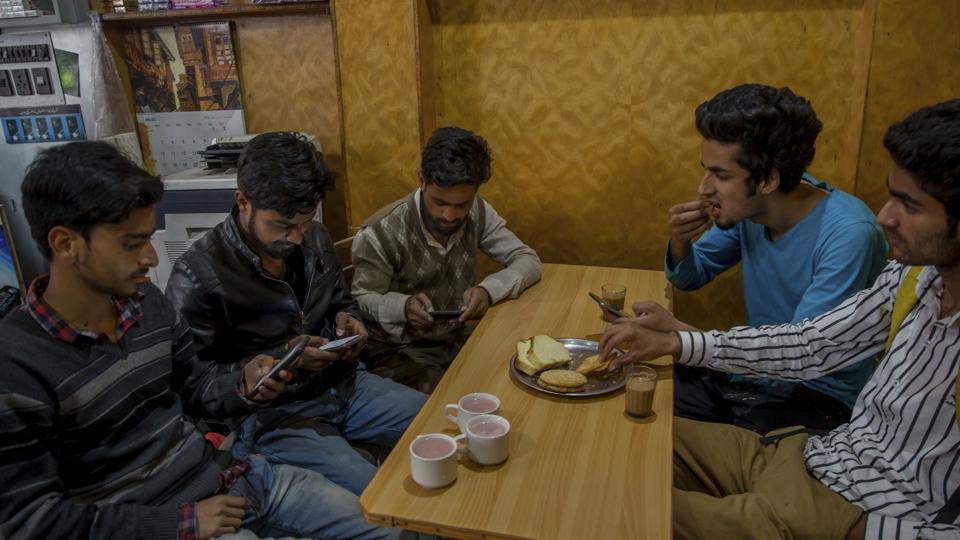
In a move aimed at blocking the spread of images and videos from strife-torn Kashmir, the Indian government has blocked 22 social media sites for a month in the state. The ban includes sites such as Baidu, Xanga, QQ, and well known apps such as Whatsapp, Facebook, Skype, etc. This follows the already existing ban on 3G and 4G mobile services in the valley. This comes in the wake of increased student protests across campuses in the valley, and the barrage of criticism faced by the armed forces for using a civilian as a human shield on an army vehicle. Although this is not the first time that restrictions on internet access have been imposed in Kashmir, this is the first time that the government has blocked so many websites all at once. Internet services have been blocked 28 times over the past five years, and in 2016, after the Burhan Wani incident, internet signals were blocked for five months.
If the attempt is to prevent images and videos such as the one about Farooq Ahmad Dar being tied to the front of an army jeep for an entire day from getting out, blocking a few websites will not do the trick. Information is like water. It will find a way out. Especially when much-used websites, such as Instagram, are not on the ‘blocked’ list. Also, in an age where virtual private networks (VPNs) are well known, blocking access to certain websites will become redundant very quickly.
Blocking the flow of information cannot be a solution to the problem. Ensuring that such violations of human rights do not happen, and bringing those responsible to justice would be a far more useful measure.
The other side of the coin in this situation is that while it might delay misinformation from spreading (It cannot possibly eliminate it, given that rumours existed and were spread quite freely before social media was even invented), it is important to remember that it will also make it harder to disseminate important information, especially in far flung areas.

The ban comes at a time when there have been protests across campuses in the Valley. A new disturbing trend has emerged where school girls, their faces covered with dupattas or wearing burkhas, have joined the ranks of those throwing stones at Indian Army personnel. These protests only go to show how much mistrust and suspicion there is in the minds of locals in the area. In such a situation, to enforce a blanket ban on technologies that teenagers in other part of the world take for granted will only make the youth feel more isolated and aggrieved. By restricting access to these websites, the government is encouraging people to find alternative ways of resistance, while inconveniencing millions of people who aren’t trying to brew discontent.
It makes no sense for the security agencies either. If they were monitoring online feeds to get a sense of the prevailing sentiment in certain areas of the Valley, by blocking traffic on these sites, they have deprived themselves of a key information highway. Even though many of these apps claim encryption, there is enough evidence to show that security agencies and governments around the world monitor the chatter on the internet to detect and prevent extreme situations from occurring.
Tldr: banning social media in Kashmir is a useless exercise, that could do more harm than good.
[Hindustantimes]




